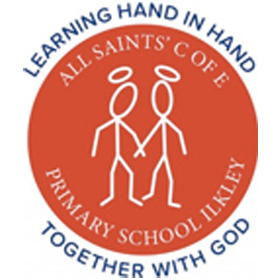Maths
At All Saints’, we have a Mastery approach to the teaching of mathematics. At the centre of this approach is the belief that all pupils have the potential to succeed, and everyone can be a mathematician. We believe that through developing a child’s ability to attain mathematical fluency, problem-solving and reasoning skills, they can make further sense of the ever-changing world around them.
At Saints’ we believe that:
Every pupil can achieve.
The answer is just the beginning.
A positive teacher mindset and strong subject knowledge are key to student success in mathematics.
What does Maths at All Saints’ look like?
Carefully structured teaching is planned in small steps. The small steps are connected, and concepts are based on simple building blocks that grow as we grow.
Learning in maths has a clear sequence – concrete, pictorial, abstract, varied fluency and problem solving.
Reasoning plays a prominent part in learning, and we reason all the time! We discuss what we are doing, how we are doing, and this leads to generalisation of the maths, and the ability to apply it to multiple contexts and solve problems.
Maths is purposeful and relevant to our children.
Maths is a fun subject! All children are challenged and encouraged to explore and learn from mistakes.
Lessons begin with retrieval practice, revisiting prior learning from last lesson, last week, last topic and last term.
Teachers provide opportunities for pupil-pupil and pupil-teacher talk, to develop reasoning, flexibility, and adaptability in mathematical thinking.
Precise questioning is the key to success in all our mathematics lessons, with open questioning techniques, often concentrating on the theme of ‘why’, continuously adapted by the teacher based on assessment for learning.
Concrete materials, contexts, drawings and diagrams are used to strengthen understanding.
Fluency: Pupils independently complete questions using procedural variation, helping focus attention on the structure.
Pupils independently justify, reason and convince. Good answers often include pupils acting as teachers.
Pupils independently apply their knowledge in familiar and unfamiliar contexts or explain typical misconceptions.
Children are provided with rich maths tasks which take time to solve and lend themselves to collaboration and multiple perspectives.
Maths in Early Years Foundation Stage
Number sense is fundamental for children in the early years and is the key to mastering mathematical concepts in the future. Children learn to have a deep understanding of numbers to 10 and develop automaticity to fluently recall number bonds to 10. There is a strong emphasis on understanding number patterns, which can be built on further in year 1. Children are provided with opportunities to use a wide range of practical resources in order to develop the conceptual understanding of maths, its structures, and its relationships. This is built on and developed further throughout school.
Maths in Key Stage 1
Daily mastering number sessions are delivered to secure firm foundations in the development of good number sense for all children from Reception through to Year 1 and Year 2. The aim over time is that children will leave KS1 with fluency in calculation and a confidence and flexibility with number. Attention will be given to key knowledge and understanding needed in Reception classes, and progression through KS1, which is fundamental for future mathematical learning.
Maths in Key Stage 2
Time is devoted to learning times tables. In lessons children explore the patterns and connections within the new times table. Three or more times a week in every class there is a ten-minute ‘retrieval practice’ session. Times table knowledge is built upon in upper key stage 2, ensuring the reduction of ‘cognitive load’ and essentially ‘freeing up’ space to focus brain activity on the application of the facts, not the facts themselves.
An All Saints’ Mathematician will:
- Be inquisitive
- Be confident and proud that they can succeed in maths
- Love maths and notice it all around them
- Be a resilient problem solver – have the confidence to try and try again
- Make connections and find patterns within mathematics and across the entire curriculum
- Be open to different approaches, recognise the strengths and weaknesses of these and how they change in different situations
- Have a sense of accomplishment and pride – find satisfaction in solutions
- Be fluent and aim for complete mastery
- Be confident mathematical communicators; explain, justify and reason
- Appreciate both the relevance of maths and its abstract beauty
